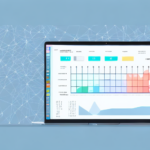Understanding Local Sales Optimization (LSO) in E-Commerce Accounting
As an e-commerce business owner, one of the most crucial aspects of your operation is accounting. Without accurate accounting, your business runs the risk of financial errors and losses that could impact your bottom line. Local Sales Optimization (LSO) has emerged as a vital tool for e-commerce accounting, helping businesses navigate the complexities of sales tax and optimize their local sales strategies. In this article, we'll explore what LSO is, its importance, and how to effectively connect, optimize, and manage LSO for your e-commerce business.
The Importance of LSO for E-Commerce Accounting
What is Local Sales Optimization (LSO)?
LSO refers to the process of optimizing local sales for e-commerce businesses by managing and interpreting data related to sales tax, which can vary significantly across different states and regions. Accurate LSO helps e-commerce businesses avoid financial risks associated with incorrect tax calculations, ensuring compliance with local tax regulations.
Ensuring Tax Compliance
With the rise of e-commerce and remote sales, tax legislation has become more complex and ever-changing. LSO ensures that businesses remain compliant with these guidelines, preventing penalties, fines, or tax audits that could seriously impact your finances. According to the TaxJar 2023 Sales Tax Statistics, non-compliance can cost businesses thousands in penalties annually.
Financial Benefits of LSO
Accurate sales tax calculations help businesses avoid overpaying taxes and can even result in refunds for overpaid amounts. This precision can significantly improve a business's bottom line, especially for smaller businesses with limited resources. Additionally, by automating tax calculations and reporting, businesses can save time and reduce the risk of human error, allowing them to focus on growth and customer service.
Optimizing and Managing LSO Effectively
Data Accuracy and Record-Keeping
To optimize LSO, businesses must maintain accurate and up-to-date sales tax data. This involves meticulous record-keeping and timely tax payments to avoid penalties. Utilizing cloud-based accounting software and automated tax calculation tools can streamline this process, ensuring accuracy and efficiency.
Automation and Technology
Implementing the right technologies is crucial for effective LSO. Automated tax calculation and reporting tools can significantly reduce the chances of errors and save valuable time. Tools like TaxJar and Avalara AvaTax offer robust solutions for automating sales tax compliance and simplifying the management of local sales optimization.
Staying Updated with Tax Regulations
Sales tax laws are continually evolving, making it essential for businesses to stay informed about the latest changes. Partnering with tax professionals or utilizing sales tax compliance services can help ensure that your business remains compliant with current regulations. Regularly reviewing and updating your LSO strategies in response to legislative changes is critical for maintaining compliance.
Choosing the Right LSO Tools for Your E-Commerce Business
Key Features to Consider
When selecting LSO tools, it's important to assess your specific business needs and goals. Key factors to consider include:
- Accuracy: Ensure the tool provides precise tax calculations to avoid overpayment or underpayment.
- Integration: The tool should seamlessly integrate with your existing accounting software and e-commerce platforms.
- Scalability: Choose a solution that can grow with your business and handle increasing transaction volumes.
- Support and Training: Opt for providers that offer comprehensive support and training to help you maximize the tool's benefits.
Cost Considerations
LSO tools come with varying pricing models, including flat fees, per-transaction charges, or tiered pricing based on the complexity of your tax requirements. Evaluate the cost-effectiveness of each option to determine which aligns best with your budget and business size.
Level of Automation
Depending on your business's size and complexity, you may prefer tools that offer more automation to save time and reduce the risk of errors. Fully automated solutions handle tax calculations and reporting with minimal manual intervention, while semi-automated tools may require some manual input and verification.
Overcoming Common Challenges in LSO Management
Keeping Up with Tax Regulations
One of the primary challenges in managing LSO is staying current with rapidly changing tax laws. This requires continuous monitoring and adaptation to new regulations, which can be time-consuming and resource-intensive.
Accurate Tax Calculation
Calculating sales tax accurately is complex due to varying rates and rules across different regions. Businesses must stay informed about these differences to prevent financial discrepancies and ensure compliance.
Integration with Accounting Software
Ensuring that your LSO system integrates smoothly with your accounting software is essential for accurate financial reporting. Proper integration helps avoid errors and discrepancies in your financial statements, facilitating smoother operations.
Data Privacy and Security
Managing customer data privacy is critical, as LSO systems often handle sensitive customer information. Businesses must comply with data privacy laws and implement robust security measures to protect customer data and maintain trust.
Best Practices for Managing LSO Data
Automate Tax Calculations
Automating tax calculations reduces the likelihood of manual errors and saves time. Utilizing automated tools ensures consistency and accuracy in your tax computations.
Regular Audits
Conducting regular audits of your LSO data helps identify anomalies, prevent fraud, and ensure compliance with tax legislation. Audits can be scheduled quarterly or annually, depending on your business's size and transaction volume.
Maintain Accurate Records
Keeping detailed records of all sales and taxes paid is essential for accurate reporting and compliance. Securely storing these records ensures that you can reference them when needed and provide documentation during audits.
Understand Tax Laws and Regulations
A clear understanding of the tax laws and regulations applicable to your business is crucial. This knowledge enables you to calculate and report taxes accurately, avoiding penalties for non-compliance.
Regularly Review Integration Systems
Ensure that your e-commerce platform and payment gateway are properly integrated with your accounting software. This integration guarantees that all sales and tax data are accurately recorded and reported, streamlining your accounting processes.
Leveraging LSO Insights to Enhance E-Commerce Strategies
Analyzing Sales Data
LSO provides valuable insights into product popularity, sales trends, and geographic targeting. By analyzing this data, businesses can tailor their sales and marketing strategies to better meet customer needs and achieve sales goals.
Identifying Market Opportunities
LSO insights can uncover high-demand areas for specific products or services. This information allows businesses to adjust their inventory and marketing efforts to capitalize on these opportunities, preventing stock shortages and enhancing customer satisfaction.
Expanding into New Markets
By analyzing tax data from different regions, businesses can identify potential new markets. Expanding into these areas can help increase the customer base and boost revenue, supporting sustainable business growth.
The Role of Automation in LSO for E-Commerce Accounting
Reducing Errors and Saving Time
Automation plays a critical role in managing LSO by minimizing human errors and streamlining tax calculations and reporting. Automated tools handle repetitive tasks efficiently, allowing businesses to focus on strategic activities.
Adapting to Tax Law Changes
Automated LSO solutions can quickly adapt to changes in tax laws and regulations, ensuring ongoing compliance without manual intervention. This flexibility is essential for businesses operating in dynamic tax environments.
Best Practices for Integrating LSO with Accounting Software
Choosing Compatible Providers
Select an LSO provider that is compatible with your existing accounting software to ensure seamless integration. Compatibility reduces the risk of errors and facilitates smooth data flow between systems.
Keeping Software Updated
Ensure that both your accounting software and LSO provider's software are up to date. Regular updates incorporate the latest features and security enhancements, maintaining system integrity and performance.
Staff Training
Provide comprehensive training to your staff on how to use the integrated systems effectively. Proper training helps prevent mistakes and ensures that all team members can utilize the tools to their full potential.
Staying Compliant with Tax Regulations Using LSO
Prioritizing Accurate Record-Keeping
Accurate record-keeping and timely tax payments are essential for compliance. Implement systems that ensure all sales and tax data are recorded correctly and submitted on time.
Monitoring Regulatory Changes
Regularly monitor changes in tax laws and regulations to stay compliant. Utilize resources like the IRS Sales Tax Guidelines to stay informed about relevant updates.
Utilizing Dedicated LSO Solutions
Dedicated LSO solutions automate complex tax calculations and reporting, providing expert guidance on local sales optimization strategies. These tools help ensure compliance with tax regulations and reduce the risk of errors.
The Future of LSO in E-Commerce Accounting: Trends and Predictions
Increased Automation
Automation in LSO solutions will continue to advance, making tax compliance easier and more reliable. Enhanced automation capabilities will further reduce manual intervention and error rates.
Global Integration
LSO solutions will increasingly support global e-commerce businesses, helping them comply with tax laws and regulations in multiple countries. This global integration will facilitate international expansion and streamline cross-border sales management.
Enhanced Accuracy and Intelligence
Future LSO solutions will offer greater accuracy in tax calculations and reporting, leveraging artificial intelligence and machine learning to improve financial reporting confidence. Advanced analytics will provide deeper insights into sales and tax data, supporting more informed business decisions.
In conclusion, Local Sales Optimization (LSO) has become an essential tool for e-commerce businesses aiming to optimize their sales while maintaining compliance with local tax regulations. By implementing best practices, choosing the right tools, and leveraging automation, businesses can enhance their accounting accuracy, streamline operations, and support sustainable growth.






















